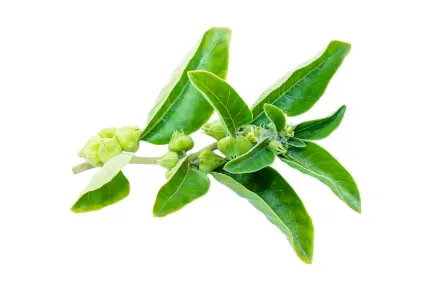Withanolide Content: Key to Ashwagandha Extract Potency
2025-07-29 17:59:17
Ashwagandha, an ancient herb revered in Ayurvedic medicine, has gained immense popularity in recent years due to its numerous health benefits. At the heart of its potency lies a group of naturally occurring compounds known as withanolides. These bioactive substances are primarily responsible for the adaptogenic and therapeutic effects associated with Bulk Ashwagandha Extract Powder. Withanolides are known to help the body manage stress more effectively, promote cognitive clarity, and support overall emotional balance. Additionally, their antioxidant and anti-inflammatory properties contribute to enhanced immune function and general well-being. In this comprehensive guide, we'll explore the significance of withanolide content in Ashwagandha extracts, how different extraction methods affect potency, and why standardization is key to ensuring consistent results for cognitive enhancement and stress reduction.

Neurotransmitters affected by Ashwagandha consumption
Ashwagandha's influence on the brain's chemical messengers is a fascinating aspect of its mechanism of action. The herb's withanolides interact with various neurotransmitter systems, contributing to its cognitive-enhancing and stress-reducing properties.
GABA: The Calming Neurotransmitter
Gamma-aminobutyric acid (GABA) is a crucial inhibitory neurotransmitter that promotes relaxation and reduces anxiety. Ashwagandha extract withanolides have been shown to modulate GABA receptors, potentially enhancing its calming effects. This interaction may explain the herb's anxiolytic properties and its ability to improve sleep quality.
Serotonin: The Mood Regulator
Serotonin plays a vital role in mood regulation, sleep, and appetite control. Research suggests that Ashwagandha may influence serotonin levels, contributing to its antidepressant-like effects. By potentially increasing serotonin activity, Bulk Ashwagandha Extract Powder could help alleviate symptoms of depression and improve overall mood.
Dopamine: The Motivation and Reward Neurotransmitter
Dopamine is associated with motivation, pleasure, and cognitive function. Some studies indicate that Ashwagandha may affect dopamine signaling, which could explain its potential benefits for focus, motivation, and cognitive performance. This interaction may be particularly relevant for individuals seeking to enhance their mental clarity and productivity.
Clinical studies on Ashwagandha's cognitive enhancement effects
The cognitive benefits of Ashwagandha have been the subject of numerous scientific investigations. These studies provide valuable insights into the herb's potential to improve various aspects of mental function.
Memory and Information Processing
A randomized, double-blind, placebo-controlled study examined the effects of Bulk Ashwagandha Extract Powder on cognitive function in adults with mild cognitive impairment. Participants who received Ashwagandha showed significant improvements in immediate and general memory, as well as executive function, attention, and information processing speed compared to the placebo group.
Stress Reduction and Cognitive Performance
Another clinical trial investigated the impact of Ashwagandha on stress and cognitive function in chronically stressed adults. The results demonstrated that participants taking Ashwagandha experienced significant reductions in stress levels and improvements in cognitive tasks, including reaction time and task performance.
Neuroprotective Properties
Research has also explored the neuroprotective potential of Ashwagandha root extract. In vitro and animal studies suggest that withanolides may help protect neurons from oxidative stress and beta-amyloid-induced toxicity, which are associated with neurodegenerative disorders. While more human studies are needed, these findings are promising for the herb's potential in supporting long-term brain health.
Optimal dosage for improved mental clarity and focus
Determining the ideal dosage of Ashwagandha for cognitive enhancement is crucial for maximizing its benefits while minimizing potential side effects. It's important to note that dosage recommendations can vary based on the specific form and concentration of the extract.

Standardized Extract Considerations
When using Ashwagandha extract withanolides, it's essential to consider the standardization of withanolide content. High-quality extracts are typically standardized to contain a specific percentage of withanolides, usually ranging from 2.5% to 5%. This standardization ensures consistency in potency and efficacy.
Recommended Dosage Range
Based on clinical studies, the effective dosage range for cognitive benefits appears to be between 300-600 mg of Bulk Ashwagandha Extract Powder per day. However, some research has used doses up to 1000 mg daily, split into two doses. It's advisable to start with a lower dose and gradually increase as needed while monitoring your body's response.
Timing and Administration
For optimal cognitive benefits, many experts recommend taking Ashwagandha extract with meals, preferably in the morning or early afternoon. This timing may help enhance absorption and minimize potential sleep disturbances in sensitive individuals. As always, it's crucial to consult with a healthcare professional before starting any new supplement regimen, especially if you have pre-existing health conditions or are taking medications.
Conclusion
In conclusion, the withanolide content in Ashwagandha extract plays a pivotal role in its cognitive-enhancing properties. By influencing key neurotransmitters and providing neuroprotective effects, Ashwagandha offers promising benefits for mental clarity, focus, and overall brain health. As research in this area continues to expand, we may uncover even more potential applications for this remarkable herb in supporting cognitive function and well-being.
Are you a nutraceutical company or functional beverage maker looking to harness the power of Ashwagandha in your products? YTBIO offers premium, organic Bulk Ashwagandha Extract Powder with standardized withanolide content. Our extracts are certified organic, non-GMO, and backed by rigorous quality control measures. Whether you're developing stress-relief supplements, cognitive enhancement formulas, or adaptogenic beverages, our high-quality Ashwagandha extract can help you create innovative, effective products. Don't miss out on the opportunity to elevate your offerings with nature's cognitive powerhouse. Contact us today at sales@sxytorganic.com to learn more about our Ashwagandha extract and how it can benefit your business.
References
1. Singh, N., et al. (2011). An overview on ashwagandha: A Rasayana (Rejuvenator) of Ayurveda. African Journal of Traditional, Complementary and Alternative Medicines, 8(5S).
2. Chandrasekhar, K., et al. (2012). A prospective, randomized double-blind, placebo-controlled study of safety and efficacy of a high-concentration full-spectrum extract of Ashwagandha root in reducing stress and anxiety in adults. Indian Journal of Psychological Medicine, 34(3).
3. Choudhary, D., et al. (2017). Efficacy and Safety of Ashwagandha (Withania somnifera (L.) Dunal) Root Extract in Improving Memory and Cognitive Functions. Journal of Dietary Supplements, 14(6).
4. Ng, Q. X., et al. (2020). A systematic review of the clinical use of Withania somnifera (Ashwagandha) to ameliorate cognitive dysfunction. Phytotherapy Research, 34(3).
5. Bonilla, D. A., et al. (2021). Effects of Ashwagandha (Withania somnifera) on Physical Performance: Systematic Review and Bayesian Meta-Analysis. Journal of Functional Morphology and Kinesiology, 6(1).
6. Lopresti, A. L., et al. (2019). An investigation into the stress-relieving and pharmacological actions of an ashwagandha (Withania somnifera) extract: A randomized, double-blind, placebo-controlled study. Medicine, 98(37).
_1737093401309.png)
